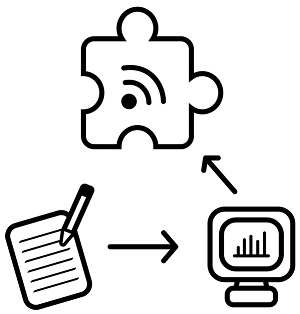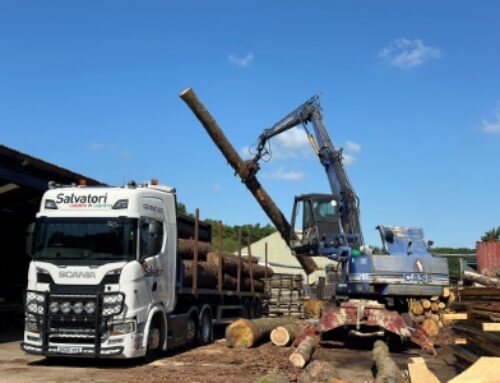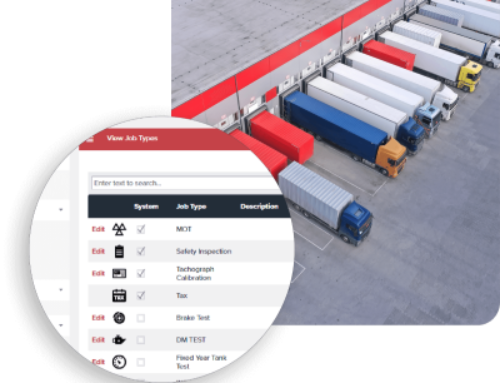Fuel management for the future
Innovation, integration and sustainability are transforming modern fuel management systems, says Peter Marsh, managing director at Jigsaw
In an era where energy consumption underpins the movement of people, goods, and data, the management of fuel is experiencing a significant transformation.
From the forecourts of bustling cities to the remote outposts of industry, advances in technology and policy are reshaping the way we produce, distribute, store, and consume fuel.
As the world pivots toward sustainability and operational efficiency, modern fuel management systems have emerged as a linchpin in the journey to a cleaner, more accountable energy future.
 The evolution of fuel management
The evolution of fuel management
Not so long ago, fuel management was a straightforward affair: storage tanks, manual pump records, and a heavy reliance on human oversight.
However, as the demands of industry and transportation grew, so too did the complexity of managing fuel assets. Today’s fuel management combines cutting-edge hardware, sophisticated software, and real-time data analytics, creating a comprehensive system that optimises every drop of fuel.
Fuel management now encompasses all stages of the fuel lifecycle – from procurement and storage to dispensing and consumption. Organisations are under increasing pressure to minimise costs, reduce waste, and limit the environmental impact of their operations.
Technological advances driving change
Fuel management systems have come a long way from the clipboard and padlock era, through standalone systems, then daily polled systems and now the latest real-time systems which authorise vehicles, display fuellings and update stocks all in real time. Having all the data updated in real time on a central server brings new opportunities for data integration with other systems. These are just some of the advantages that the latest fuel management systems bring:
1. Real-time APIs
With the advent of data display systems like Microsoft’s Power BI, and requirements for tighter integration of fuelling and stock data into external systems, direct but safe and controlled access to the fuel management system’s data can be achieved with an application programming interface (or API). This is now an essential interface to any fuel management system and centralised data management makes this possible.
 2. Real-time mileage capture from onboard telematics
2. Real-time mileage capture from onboard telematics
One of the holy grails of fuel management is to gather accurate mileage information at the time of fuelling. Asking the driver to type in an accurate mileage, even with real-time range checking, isn’t always as successful as it could be so, in the past, this has resulted in additional hardware to measure and transmit the mileage to the fuel island.
Now, however, the fuel management system can be fully integrated with many of the largest telematics services, so that when a fuelling event hits the Jigsaw server, it asks the telematics server for the vehicle’s mileage in real time.
Seeing EV charging as separate from the overall vehicle fuelling picture means that a complete view of vehicle running costs is more difficult to achieve. Jigsaw systems can manage an EV charge point as easily as it can manage a diesel pump. kWh are displayed alongside litres for diesel and kg for CNG.
Sometimes overlooked by many EV charger control packages, parameters such as amount of charge, length of time to charge, battery degradation with time, miles per kWh are all as essential as MPG in a liquid fuelled vehicle.
4. Fully integrated tank gauge reading
Jigsaw Fuel Island hardware can now accept a tank gauge probe directly into the system. This was an essential development as the additional cost of tank gauge hardware over and above the cost  of the fuel management system sometimes means that tank gauging is not considered.
of the fuel management system sometimes means that tank gauging is not considered.
With a real-time system, if stock falls when the pump isn’t running then a fuel theft may be in progress so this can be detected, and staff notified as it happens.
Issues with pump calibration are obvious even if the drift is over several months. These and other advantages rely on a direct, real-time comparison between the gauge and calculated stock values.
5. Delivery management system – third party stock management
With a centralised database of all tank stocks, it is a simple matter, at the user’s request, to allow fuel supply companies to view all fuel stocks in real time so that they can manage delivery planning directly without waiting for an order.
More than this, the Jigsaw system predicts how long the fuel in the tank will last to allow the fuel supply companies to better plan and schedule deliveries. Once a delivery is scheduled an icon appears on the end user’s web service site screen against the tank to give confidence that all is in hand.
 6. Active involvement in green fuels initiatives
6. Active involvement in green fuels initiatives
Jigsaw have for many years put a lot of effort and development time in to working with green fuels suppliers. EVs aren’t the universal solution that many pretend they are, but there are quite a few alternatives.
Jigsaw work closely on CNG, LNG, H2, Biodiesel and HVO projects so that these are all managed as simply as any other fuel by our systems. Our CO2 emissions reporting makes generating data for schemes such as FORS very quick and simple.
Next steps in fuel management
Jigsaw are now exploring the possibility of using AI tools and Machine Learning to look out for issues amongst the wealth of data now available in one place. This will make fuel management much more proactive by identifying poorly performing vehicles and drivers, theft from tanks, slow running pumps and a wealth of other issues.
Modern fuel management: a catalyst for change
Modern fuel management stands at the crossroads of technology, sustainability, and efficiency. By embracing innovation, organisations can not only reduce costs and improve operations, but also meet the urgent need for environmental responsibility. As the world’s appetite for energy continues to grow, these systems will be instrumental in steering us toward a greener, more sustainable tomorrow.
The journey ahead is complex, but the tools and vision are now available. With continued investment and collaboration across industries, the future of fuel management promises to be as dynamic and transformative as the energy revolution itself.













